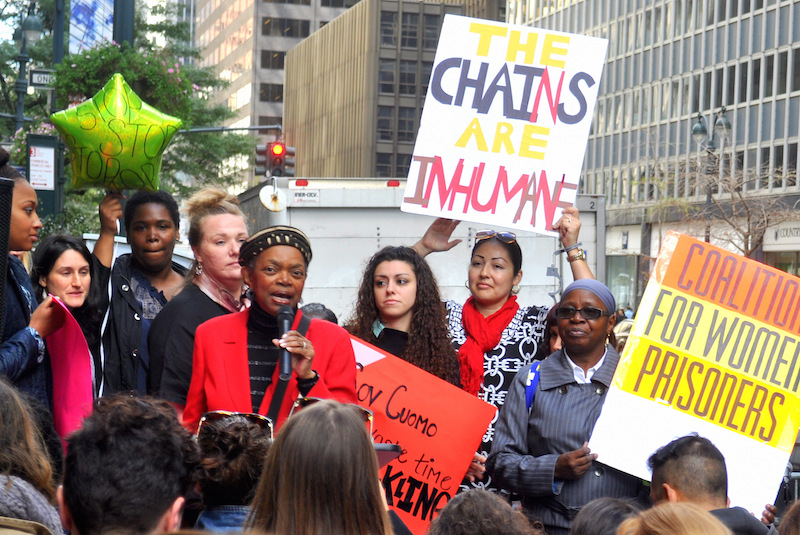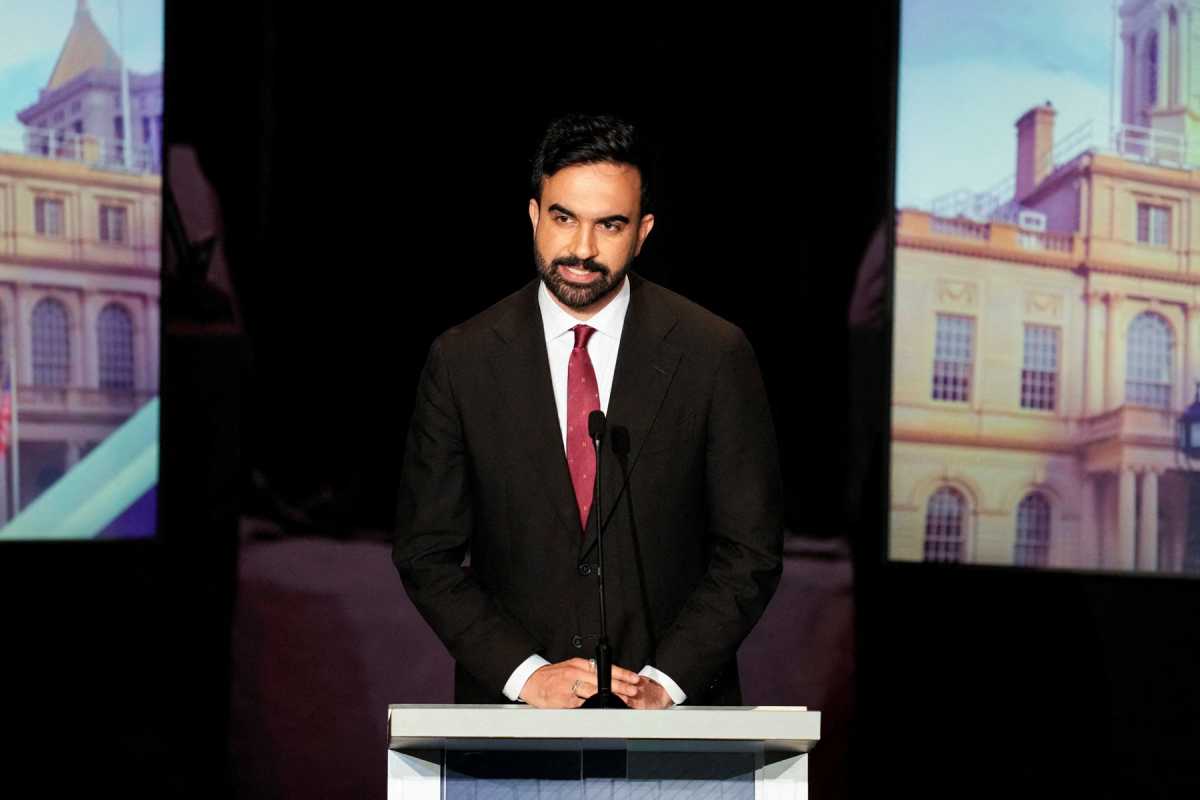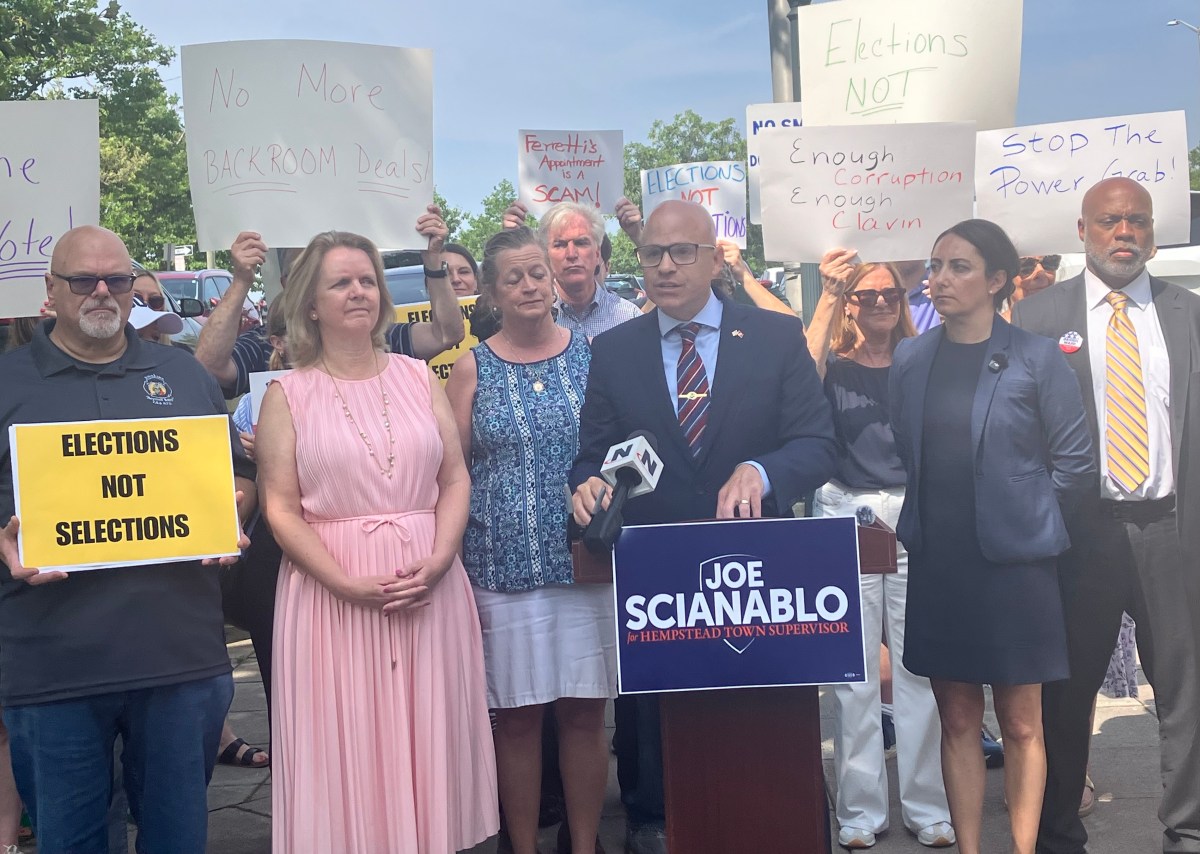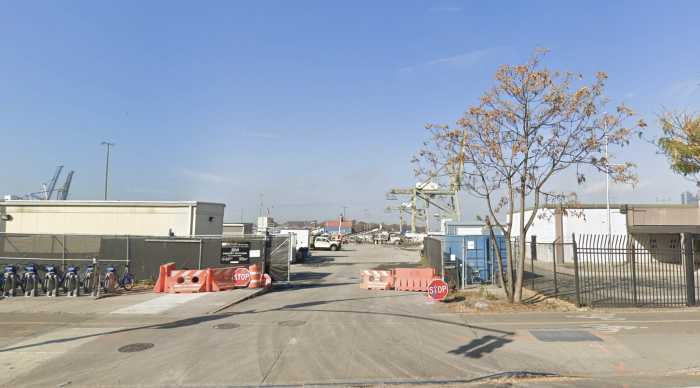State Senator Velmanette Montgomery yesterday saw Governor Andrew M. Cuomo sign a bill she twice sponsored prohibiting the use of restraints during the transport of all pregnant inmates at State and local correctional facilities, and within eight weeks after the delivery or pregnancy outcome, except in the most extraordinary of circumstances.
Current law prohibits the use of restraints on an inmate about to give birth, but does not address the use of restraints on pregnant inmates prior to or after childbirth or pregnancy outcome.
In addition to the shackling provision, the bill also prohibits the presence of any correctional staff in the delivery room unless requested by medical staff or the inmate giving birth, requires more rigorous training of all correctional staff on this policy, and institutes annual detailed reporting of all instances in which officers deem restraints necessary.

“When the first version of this bill was passed (after many years of effort) I was so happy to think that the dangerous practices being faced by pregnant women in the corrections system would finally be stopped. It was a great shock and disappointment to see the law being ignored or distorted by individual “interpretations” of the regulations by correctional personnel, and I was determined to work with advocates to address this situation,” said Montgomery, who represents Fort Greene, Boerum Hill, Red Hook, Bedford-Stuyvesant, Sunset Park, Gowanus, and Park Slope.
“After months and months of drafting language, and imagining every possible interpretation to make sure the law was clear and could not be distorted, we produced the current legislation which Governor Cuomo, true to his word, has signed into law,” she added.
“These common sense reforms strike the right balance that protect the health and dignity of apregnant inmate, while also addressing public safety concerns,” said Cuomo. “This legislation has made New York’s criminal justice system fairer and stronger and I thank the sponsors and advocates who worked so hard to get it passed.”
East Flatbush Assemblyman N. Nick Perry, a co-sponsor of the bill on the assembly side, noted that even while paying for crimes they committed, women are still entitled to be treated as human beings.
“New York made a big statement with a clear message that we will respect the human rights of the pregnant women in our prison system. I thank prisoners’ rights advocates and Governor Cuomo who went the extra mile to make sure we overcame the opposition and made it possible that this bill would be signed into law.” said Perry.
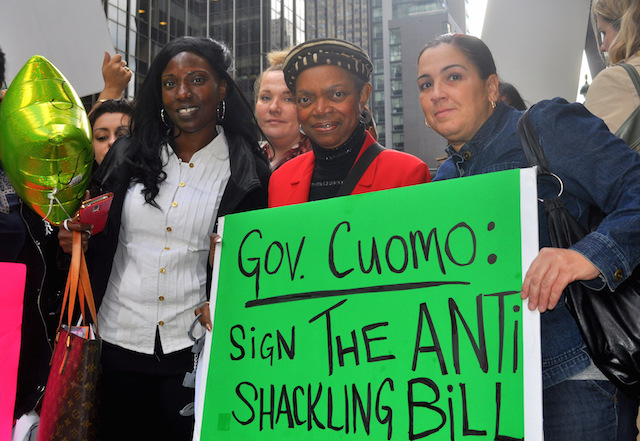
The measure also drew strong support from the NYCLU, the Legal Aid Society, the Legal Action Center, the National Organization of Women (NOW) of New York, and the Women and Justice Project.
“We applaud Governor Cuomo for signing this bill and taking a strong stand to abolish the barbaric and dehumanizing practice of shackling incarcerated pregnant women. With this law, New York State takes a critical step forward in protecting the health, safety and human rights of women,” said Tamar Kraft-Stolar, Co-Director of the Women and Justice Project and former Director of the Correctional Association of New York’s Women in Prison Project.
“This day is the result of years of hard work by many groups and the courageous advocacy of women who experienced first-hand the horror of shackling during pregnancy. As the most progressive of its kind to date, this law can contribute to reform nation-wide and help spur recognition of the need to end mass incarceration of women and all people,” she added.


